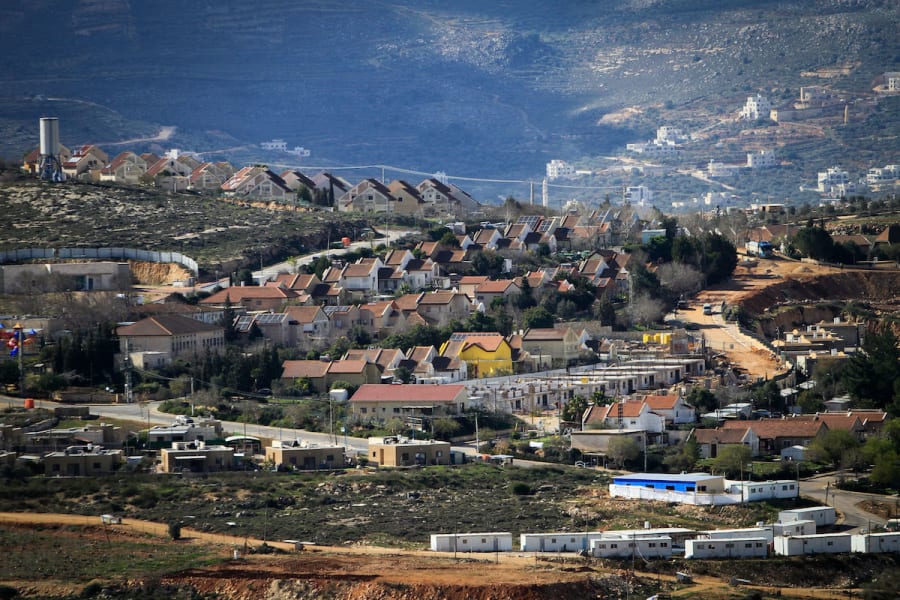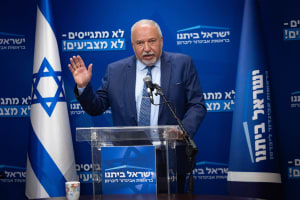International community blasts Israeli outpost legalization agenda
“We strongly oppose such unilateral measures, which exacerbate tensions and undermine the prospects for a negotiated two-state solution,” says U.S. secretary of state

The international community blasted the Israeli government’s announcement to greenlight the legalization of nine settlement outposts that are located deep in the disputed territory of Judea and Samaria, also known as the West Bank.
In a united front against the expansion, the United States, the European Union and the Arab world condemned Israeli Prime Minister Benjamin Netanyahu’s government for the move, which Israel says is a response to recent Palestinian terrorist attacks against civilians in Jerusalem. In addition, the Israeli government also plans to construct 10,000 new Jewish homes in the disputed territories.
The Saudi Foreign Minister Prince Faisal bin Farhan, who visited the European Union capital Brussels, criticized the Israeli government’s outpost legalization plan as “a blatantly illegal act that will only serve to further inflame tensions and complicate the situation.”
Saudi Arabia and Israel do not currently have official diplomatic relations, however, Riyadh and Jerusalem have been cultivating covert ties and the Saudis recently opened up their airspace to Israeli air traffic, following the historic Abraham Accords peace agreements.
Netanyahu indicated in several interviews that a peace agreement with Saudi Arabia is a top diplomatic priority for the new Israeli government. In December, Netanyahu reportedly floated the idea of giving up Israeli sovereignty in Judea and Samaria in exchange for full diplomatic relations with gulf nation.
Standing alongside the Saudi foreign minister in Brussels, EU Foreign Policy Chief Josep Borrell joined the international condemnation of the new Israeli settlement agenda.
“This is, unfortunately, a tendency for years now,” Borrell said, affirming the EU’s commitment to a two-state solution.
“We feel that it is necessary for all of us, and for the key international partners, to explore ways to revive and safeguard the prospect of the two-state solution and to achieve a just, comprehensive and lasting peace by building on the Arab Peace Initiative, United Nations resolutions and established international peace parameters,” Borrell stated.
The late Saudi King Abdullah presented the Arab Peace Initiative in 2002, less than a year after mostly Saudi-born terrorists led the lethal aerial assault against the World Trade Center towers in New York City.
The peace initiative reportedly offers full diplomatic relations between Israel and the Arab world in exchange for a total Israeli withdrawal from the disputed territories. In addition, the plan vaguely demands a “just solution” for the Arab refugee problem, however, it is unclear whether this implies financial compensation or constitutes an implicit demand for the “right of return” to Israel for millions of foreign-born Arab “refugees.” If implemented, the proposed solution could effectively mean Israel’s destruction as a Jewish majority-state.
While the U.S. remains Israel’s closest ally, Secretary of State Antony Blinken issued an unusually strong criticism of the Israeli outpost legalization plan.
“Like previous administrations, Democratic and Republican, we strongly oppose such unilateral measures, which exacerbate tensions and undermine the prospects for a negotiated two-state solution,” Blinken said.
“As I have previously stated, anything that takes us away from the vision of two states for two peoples is detrimental to Israel’s long-term security, its identity as a Jewish and democratic state, and to our vision of equal measures of security, freedom, prosperity, and dignity for Israelis and Palestinians alike,” he added.
Blinken also urged all sides in the region to deescalate the current wave of tension and violence.
“We call on all parties to avoid additional actions that can further escalate tensions in the region and to take practical steps that can improve the well-being of the Palestinian people.”
The two-state solution was first presented by the former British Peel Commission in 1937. In 1947, the UN partition plan envisioned the division of the British Palestine Mandate into one Arab and one Jewish state. Over the years, the international community has presented the two-state solution on several occasions. While the Jewish side has accepted it, the two-state solution has never been implemented due to consistent Arab opposition to the existence of a Jewish state within any boundaries.

The All Israel News Staff is a team of journalists in Israel.













